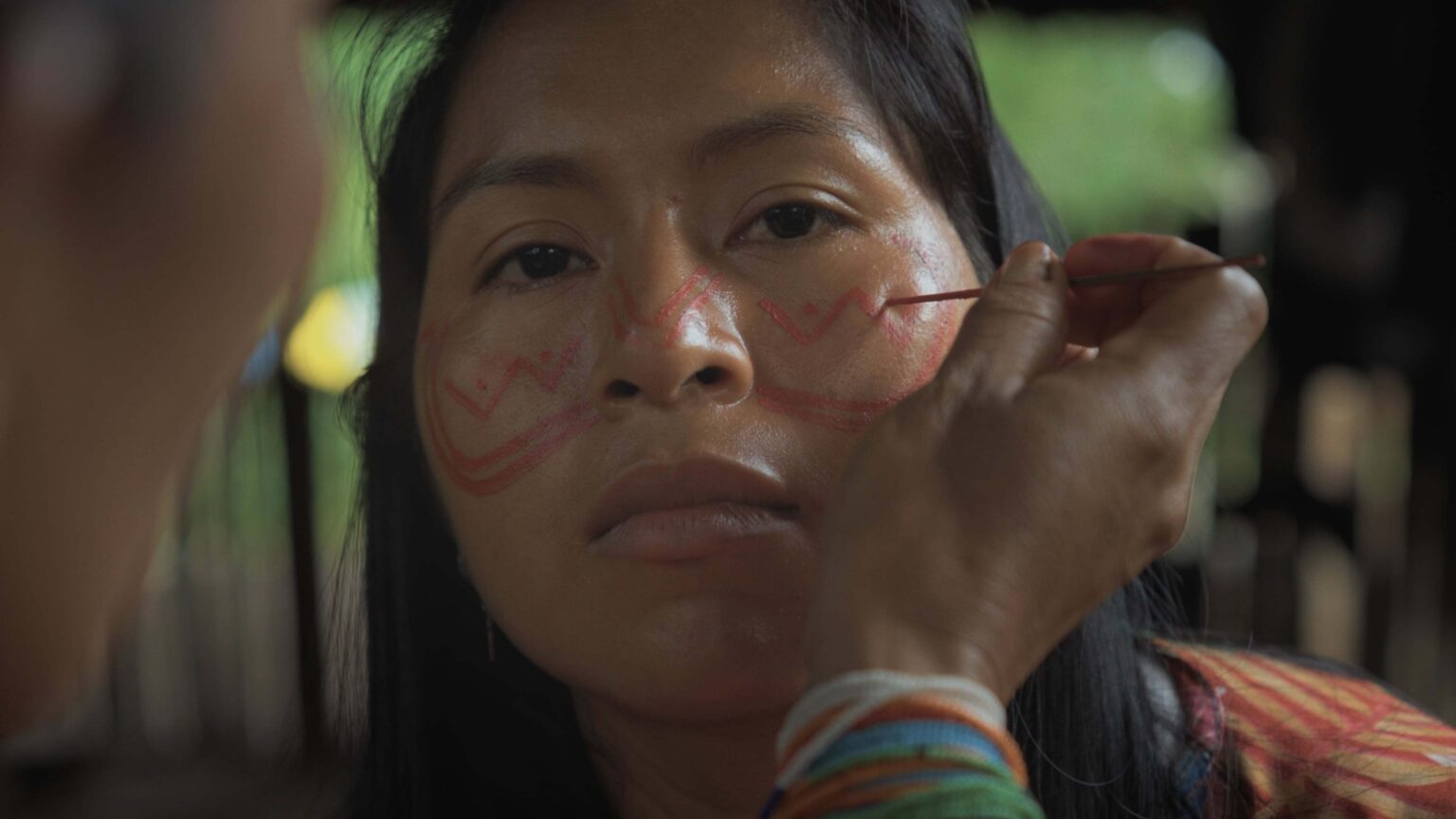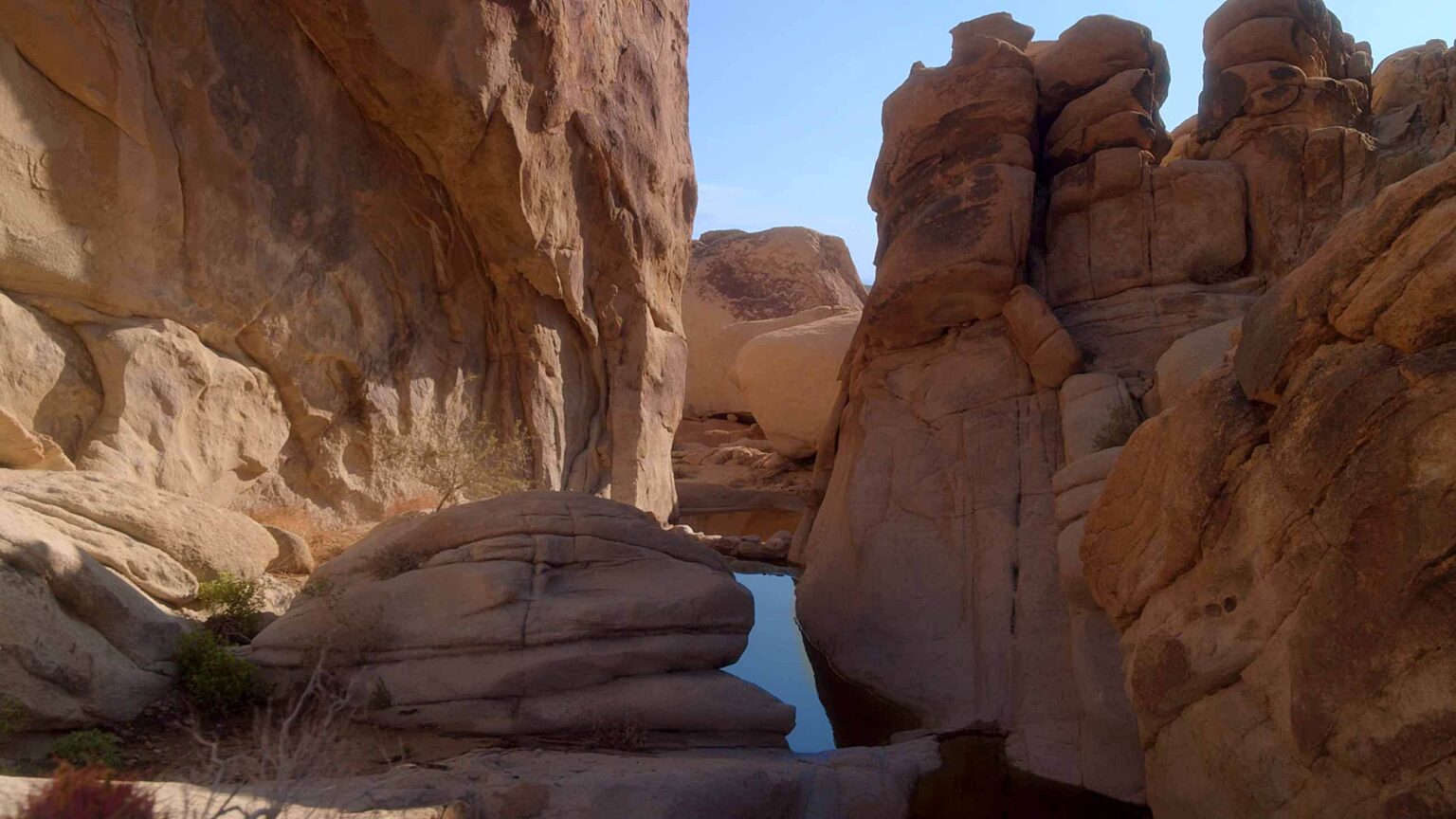Wayfinders Circle Inia Ikiampri

Inia Ikiampri (Our Jungle)
2024 | Documentary Short | 25 MIN. 10 SEC.
Directed by Martín Kingman - Produced in collaboration with Nación Achuar de Ecuador (NAE), Comunidad Ancestral Kapawi and Asociación Maana
In an intimate “Day in the Life” of the Achuar people, Inia Ikiampri follows members of the Kapawi community in Achuar Territory in the Amazon Basin of Ecuador portraying how different generations go about their lives in the heart of the Amazon forest. The film explores themes of Achuar land, language and culture at the intersection of tradition and modernity.
The Achuar are an Indigenous nation that inhabits the entire basin of the Pastaza River in Ecuador and Peru, a river that flows into the Amazon. Although historically nomadic, today, the Achuar live in 88 communities throughout over 800,000 hectares of ancestral territory in Ecuador. “Inia Ikiampri,” which means “Our Jungle” in the Achuar Language, follows Achuar families from the Kapawi Community as they live, work, and share their culture.
The film explores the paradox of their immense cultural potential and their contribution to forest conservation, in contrast to their high vulnerability to colonization, deforestation, mineral extraction, and cultural changes. “Inia Ikiampri” is a simple story of resistance, perseverance, and the intrinsic reciprocity the Achuar share with their vital rainforest and river territory.
Directors’ Statement
My connection with Amazonian cultures dates back to my childhood, when I arrived in the region with my parents who were supporting the formation of strong indigenous governments capable of resisting mineral and oil extraction. As we walked amidst towering trees, bird songs, and mammals, I learned to respect their water, forest, and vegetable garden spirits. Like most young Amazonians, I left my town to study in Quito, Ecuador, spending six challenging years in an urban environment with all its modernity. Upon completing my studies, I embarked on a new personal quest, to reestablish my connection with Indigenous Peoples. During this return to my roots, I began practicing extreme river kayaking, deepening my connection with water and Amazonian landscapes. This bond, along with cinema, led me to collaborate with organizations and indigenous peoples, such as the Waorani, Siona, Siekopai, Cofán, Awá, and Épere. Recently, I participated in an extensive communication campaign that, through indigenous voices, called on the citizens of Ecuador to vote to halt hydrocarbon extraction in the Yasuní National Park. In a historic vote, nearly six out of every ten Ecuadorians chose to keep the oil underground and preserve the most biodiverse place on the planet.
Martín Kingman
Documentarian Martín Kingman was born near Macas, Ecuador, between the eastern side of the Andes and the northwestern edge of the Amazon basin. As a child, his parents worked as part of a growing social movement to establish strong local Indigenous governments to provide autonomy and land protection. Drawn to the waters of the many rivers snaking throughout the region, he became a strong swimmer and was named to the Ecuadorian Olympic swim team in his youth. He also became enamored with photography and followed his older brother, nature photographer Santiago Kingman, into the animal and human communities of the area.
In the early 2010s he gave up swimming and decided to pursue visual storytelling full time. He enrolled in writing and filmmaking courses at the Universidad de Las Americas, and then the INCINE Institute in Quito. Since graduating, Martin has dedicated himself to partnering with the indigenous peoples of Ecuador and Peru, bringing to life for audiences around the world the thriving cultures of the Waorani, Siona, and Achuar Nations, among others. He has shot and directed dozens of films of different lengths as well as impactful ad campaigns, including recent PSAs that helped pass the historic vote to ban oil exploration in Indigenous-held Yasuni National Park.

Chikuish Tentets
Chikuish Tentets Is a father, cultural standard bearer, and community leader in Kapawi.

Ruth Tentets
Ruth Tentets Is a recent graduate of the TUNA school, The Kapawi Community’s educational hub. Ruth maintains her culture and plans to give back to her community; Ruth speaks both Achuar and Spanish and plans to attend nursing school.

Graciela Tentets
Graciela Tentets Graciela works alongside Ruth to maintain their culture and traditions. She also plans to attend University and return to Kapawi to help sustain their way of life.

Narankas Mukucham
Narankas Mukucham Is the director of the TUNA School in the Kapawi Community and is responsible for the education and training of the next generation of Achuar leaders.

Johnny Saant
Johnny Saant Is a cultural leader who is training with his uncle, a Shaman, to continue their spiritual practices in Kapawi.
Kanua Film Festival
Date: 2023
Location: Ecuador
Festival de Cine Amazonia del Plata
Date: 2024
Location: Argentina
Festival International Présence Autochtone
Date: August 2024
Location: Montreal, Canada
Wildlife Conservation Film Festival
Date: October 2024
Location: Monterrey, Mexico
Hawaii International Film Festival
Date: October 2024
Location: Honolulu, Hawaii
Festival Internacional de Cine de Cuenca - FICC
Date: September 2024
Location: Santa Ana de los Cuatro Ríos de Cuenca, Ecuador
Moss Farm in Montreal
Date: January 2025
Location: Montreal, CA
FLIC
Date: Feb 14-20, 2025
Location: Polson, MT
Here you can download the press notes, containing comprehensive information and insights into the making of the film, the people involved, images, contact and other information for press.
The ancestors of the Achuar people have lived along the Pastaza and Morona rivers for thousands of years. In 1992, the Achuar were granted legal title over 680,000 hectares of the 800,000 in total that comprise their ancestral territory. This has allowed the Achuar to manage their natural resources according to their own vision; except for underground/mineral resources, to which the Ecuadorian State still holds title. The Achuar have a robust governance structure that has allowed them to keep oil extraction and logging out of their territory for 60 years. The Achuar have shown a strong capacity for managing their territory, and elect vibrant and visionary individuals to hold leadership roles in their 88 communities, 21 associations, and in the Achuar Nation of Ecuador (NAE), the organization representing the Achuar people and to strengthen their guardianship of the rainforest. The Achuar governance model is participatory, with delegates from the 21 associations meeting annually in a congress to hear about the work done by the NAE, to learn about the work done by outside organizations, and to decide the priorities of the Achuar nation for the future year. The congress includes men, women, elders, youth, and other special guests.
Support Achuar and help us save our sacred lands. Donate Today!
We would love to hear from you! Please fill out the form below to get in touch regarding any film-related inquiries, feedback, or collaboration opportunities.
Acclaim For The Film



